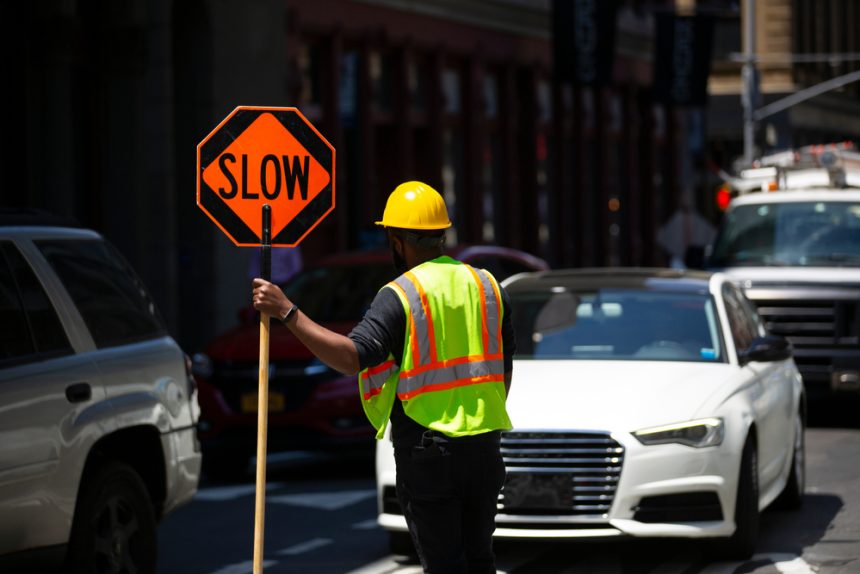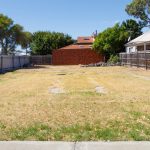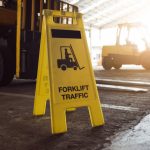Stop sign holders will soon earn a whopping $120,000 a year under a union pay deal, potentially costing Victorian taxpayers an extra $74m a year.
The Construction, Forestry, Maritime, Mining and Energy Union (CFMEU) is set to finalise a new workplace agreement to see the union workers, including those working on the state’s Big Build, pocket “at least” a 5 per cent pay rise.
The deal would mean general labourers and traffic controllers – who operate the stop-and-go paddle pop signs – would earn more than $2000 a week over the three-year agreement and pocket another $260 a week in a travel allowance.
This $120,000-a-year figure is only for a basic 36-hour week – leaving the potential for those working overtime or more than five days a week to rake in a lot more.
In comparison, the average wage for a nurse with a three-year university degree is $79,550 per year in Victoria.
But Australian Workers Union Construction Organiser Jade Campbell has jumped to defend the pay rise of Australia’s lollipop legends, claiming that the new rate will reflect the role’s qualifications and the added responsibility onsite.
“Although Traffic Controllers come onto the job with qualifications, employers expect to pay them like unqualified trainees, while at the same time failing to offer any training,” she says.
“Traffic Controllers have some of the most dangerous jobs in construction—four have tragically been killed on the job in Victoria since 2021.
“But they’re among the lowest-paid workers in the industry, despite being among the first workers on the job and the last off. They’re also a predominantly casual workforce, which makes it harder for them to speak up.”
Negotiations for the new deal have also looked to lock in job-share opportunities, where two people effectively work a half-day each and a five-day week trial with no weekend construction shifts unless absolutely necessary.
A waste of taxpayer money?
The deal sparked immediate backlash from the state’s opposition ministers, leading to claims that the CFMEU is driving up builders’ bills and artificially inflating already record-high construction costs.
As a result, opposition leaders have pushed for a parliamentary inquiry into state-funded infrastructure based on wildly varying price tags on two similar taxpayer-funded road upgrades.
According to Shadow Minister for Employment and Industrial Relations, David Hodgett, the recent Craigieburn Rd Upgrade, where the CFMEU is the main union, ran up a bill of $190m, while the Sunbury Rd project bill, where the AWU was on site, ran up $116m.
“Labor’s reliance on the hardline CFMEU has cost taxpayers an extra another $74 million at a time we can least afford it and today we learn that labourers and junior stop-sign holders will earn $120,000 a year under a CFMEU pay deal,” he said.
“As Labor plays hardball with pay negotiations with police, ambulance workers, firefighters, teachers and nurses, they fold to the demands of their union mates like the CFMEU.
“Labor’s Big Build is the ‘Big Bill’ as the Premier writes cheques to the CFMEU with taxpayers’ money and Victorians pay the price.”
Shadow Minister for Outer Suburban Growth, Evan Mulholland, said that the union’s pay rise will pull money out of the pockets of Victorians already doing it tough.
“The cost of this project doesn’t stand up to scrutiny, which is why we are calling for an Infrastructure Standing Committee to hold Labor to account for its mismanaged infrastructure pipeline,” he said.
“With over $38 billion in cost blowouts on major projects, Premier Jacinta Allan needs to explain exactly why the CFMEU project has cost Victorians $74 million more than a similar project in Melbourne’s north.”




